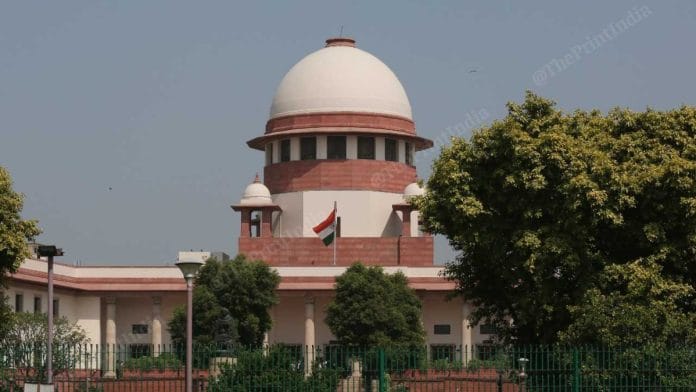New Delhi: The early morning slot fixed for the kumbhabhishekam of Lord Murugan—the deity of Sri Subramaniya Swamy Temple in Thiruchendur, Tamil Nadu—is inauspicious and could lead to “Desa Nasam and Grama Nasam”, meaning destruction of the nation and town, cautions an appeal filed in the Supreme Court against a Madras High Court’s decision that has given the go-ahead for the ritual to take place on 7 July between 6 and 6.30 am.
The appeal, filed by R. Sivarama Subramaniya Sasthirigal, the Vidhayahar or priestly authority of the Sri Subramaniya Swamy Temple in Tamil Nadu, argued that the “Abhijit Muhurtham” between 12.05 pm and 12.45 pm on 7 July is universally recognised as a “spiritually potent period” for the Kumbhabhishekam ceremony of the temple deity, Lord Murugan.
The Kumbhabhishekam ceremony is a religious ritual intended to purify and energise the temple, particularly its main deity. The ritual involves bathing the temple’s crown (kumbha) with sanctified water.
The state added that the Vidhayahar had accepted the formation of the committee and, therefore, should not be allowed to reargue the case in review applications. The petitioner is attempting to ventilate his personal grievance and to establish his supremacy in the religious matters, the state had submitted.
High Court order
In its 23 June order the HC acknowledged that the controversy stemmed from the discourteous treatment of the temple Vidhayahar by state officials. For every spiritual occasion and festival, the state and temple authorities had always sought the opinion of the Vidhayahar, the court said.
“A perusal of the previous conduct of the temple officials reveal that they used to send letters in writing seeking opinion of the Vidhayahar for fixing the date and timings for conducting each and every function,” the HC said.
“However, for a big religious function like that of consecration of Sri Subramaniya Swamy Temple, Thiruchendur, no such letter in writing has been addressed to the Vidhayahar of the temple. It is here the problem started and the conduct and attitude of the temple put the Vidhayahar in precarious position,” it added.
The court said that the Vidhayahar had voluntarily proposed three different timings in an effort to safeguard his position. It said the authorities took advantage of this and approached the experts for an opinion.
If there was any doubt, officials should have sought clarification from him on the three different timings, the court noted. But no such attempt was made, which escalated he issue into a crisis, it added.
The HC refrained from delving into who has the final say in customary temple practices, as the matter is pending before a civil court in Tamil Nadu.
It, however, faulted the Vidhayahar for not being clear while making his tentative suggestions. The HC said he should have pointed out that his initial suggestions were drafts and that he would send a formal recommendation after studying the Hindu calendar. This could have prevented the confusion.
“We make it clear that this Court was constrained to form an Expert Committee only due to the fact that Vidhayahar of the temple had given three different Pattolais (dates) without mentioning that the first two are draft in nature,” the HC held.
The court also set a condition for the state government for future events and made it mandatory to seek the Vidhayahar’s view in writing before taking a final decision on any temple practice. The Vidhayahar, too was told to specify in all his communication whether he was making tentative or final suggestions.
The Vidhayahar’s appeal in the SC argued that the HC erred in not considering that the first two suggestions were made at the oral request of the temple authorities before the Hindu calendar was officially released. He said the formal time and date were based on astrological principles, he said.
However, since the temple authorities, governed by the state government, explicitly stated they would not follow the Vidhayhar’s choice, the experts too were forced to accept it, the appeal has claimed.
(Edited by Sugita Katyal)
Also read: SC ruling is forcing rethink among judicial services aspirants. ‘Is it even worth the struggle?’







Courts should not take Indian traditional sciences lightly just because they don’t understand.
Muhurtas and their effects are real and inescapable, if in unexpected ways!